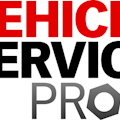The discussion on automated vehicles continues
On Feb. 2, "The Road Ahead for Automated Vehicles" hearing was held by the U.S. House Transportation and Infrastructure Subcommittee on Highways and Transit to discuss the impact of automated vehicles on mobility, safety, infrastructure, workforce, and the economy.
Before the hearing took place a statement from the Automotive Service Association (ASA) was submitted, reiterating the support from the ASA for vehicle owners and third-party repairs to have data access in not only future autonomous vehicles but all the vehicles currently on the road. This is also supported by the American Alliance for Vehicle Owners' Rights (AAVOR), American Car Rental Association (ACRA), the Tire Industry Association, and the American Property and Casualty Insurance Association.
“I also recognize that increased automation introduces new risk factors for folks that we do not understand yet, such as sensor, camera, or software problems," stated Congressman Pete Stauber (R-MN). "Because of this, diagnosing damage to a vehicle, determining liability, and the completion of police reports will increasingly rely on the data that a vehicle generates before, during, and after an incident.”
RELATED:
Why not mandatory safety inspection for automated vehicles?
NHTSA announces historic rule to modernize driverless vehicle safety standards
The vehicle of the future: Part 1
Also discussed were the various ways autonomous vehicle manufacturers are remaining transparent about the progress of autonomous vehicles. General counsel for the Autonomous Vehicle Industry Association, Witness Ariel Wolf, noted the National Highway Traffic Safety Administration's (NHTSA) order for autonomous vehicle companies to share information about any autonomous vehicle crashes is currently being followed. The companies have also shared safety self-assessments detailing the safety of the technology and as well as its information-sharing abilities.
Additionally, some companies are also a part of NHTSA's voluntary initiative where they share the location and parameters of testing the autonomous vehicles on public and private roadways. Similarly, ASA is keeping track of legislation in Pennsylvania, SB 965, which would permit autonomous vehicle companies to test their vehicles with no driver to take over in case of emergency on Pennsylvania highways. Though ASA supports this legislation so long as the appropriate vehicle safety inspection provisions are abided by, they are also urging vehicle repair shops to contact their state legislators using this link to push for assurance that existing vehicle safety inspection laws apply to autonomous vehicles.

